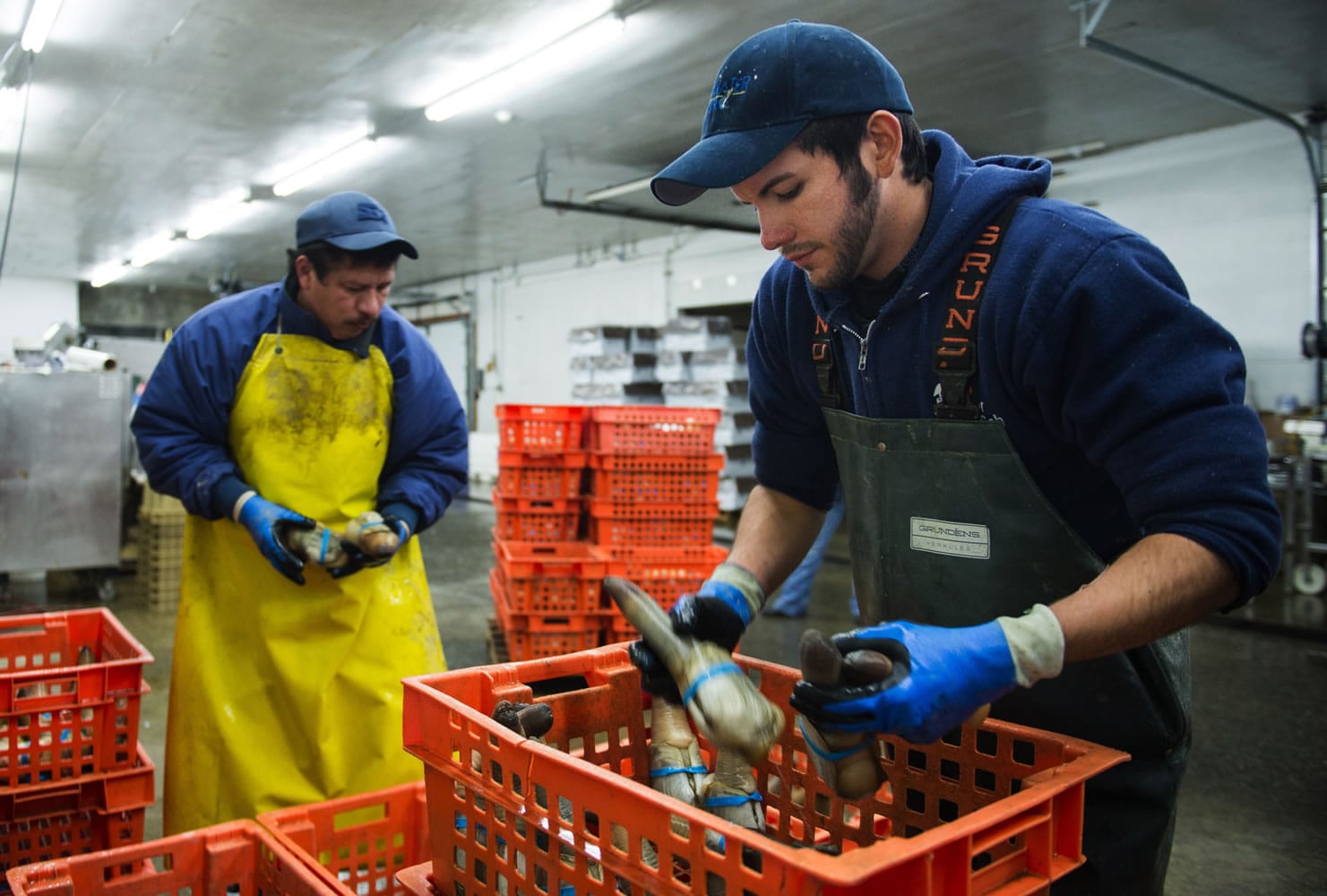SEATTLE — Washington state health officials Tuesday said their arsenic testing has confirmed that geoduck clams harvested from a bay in Puget Sound are safe to eat, following toxicity concerns that prompted China to ban imports of West Coast shellfish.
Officials hope the results will help persuade China to lift a ban it imposed last month on the import of clams, oysters, mussels and scallops harvested from Washington, Oregon, Alaska and Northern California.
China’s import ban is creating a hardship for the state’s shellfish industry. Geoducks are highly prized large burrowing clams that can fetch up to $50 a pound in Asian markets. The U.S. exported $68 million worth of geoduck clams in 2012, mostly from Washington state.
China’s ban was based in part on shipment of geoducks traced to Poverty Bay, near Federal Way, that tested above China’s standard for inorganic arsenic. Chinese officials also cited high levels of paralytic shellfish poisoning in a shipment of geoducks from southeast Alaska.
U.S. and state officials have said rigorous testing did not turn up high levels of the PSP, and that a study in Poverty Bay in 2007 did not find arsenic levels that were a health concern.
Even so, Washington state officials last month closed commercial clam harvesting on 135 acres of state-owned aquatic land in Poverty Bay as a precaution, and voluntarily tested for inorganic arsenic.
“We hope that this will help bring an end to the ban,” agency spokesman Donn Moyer said. “The government of China will make its decision on criteria that we don’t have insight into.”
Officials with the National Oceanic and Atmospheric Administration have forwarded the state’s test results to the Chinese government, agency spokeswoman Connie Barclay said in an email Tuesday.
“NOAA Fisheries and the Seafood Inspection Program will continue to work with the appropriate Chinese officials on the question of the safety of geoduck clams, so exports to China can resume as soon as possible,” she said.
The agency’s director of seafood inspection sent the Chinese government a letter in December, urging China to allow imports to resume and noting they believe that geoduck clams and mollusks harvested near the West Coast are safe to eat.
Barclay said the agency has not received a response yet.
David McBride, a Washington state toxicologist, said the tests also ensure that “we have safe geoducks here in Washington state for our own population.”
About 36 geoduck clams were harvested from Poverty Bay and combined into 12 samples that were tested in a state lab, as well as a private lab.
The samples tested lower than China’s acceptable standard. One test on a whole clam found a level higher than China’s standard, but it included skin which is not typically eaten, said McBride.



